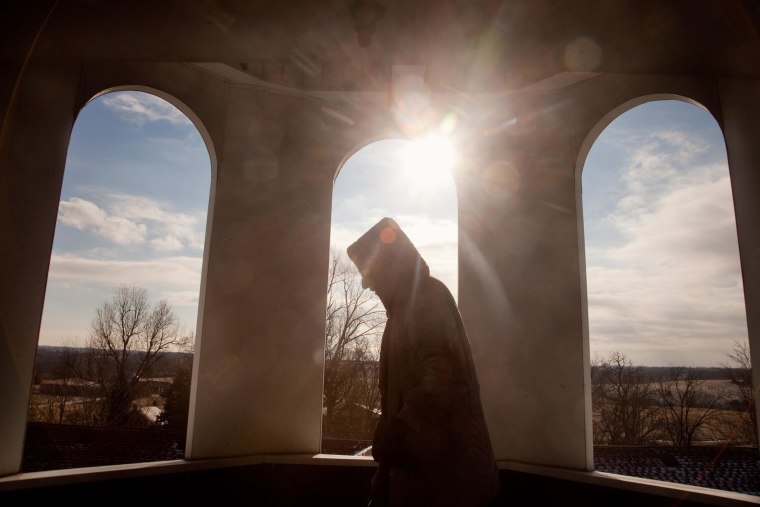Corn-speckled lands owned by a group of Catholic Trappist monks and a convent full of nuns have become a battleground in a fight between Big Energy and the "singing sisters."
The developers and the devout have clashed over an underground conduit called the Bluegrass Pipeline that would send natural gas liquids pulled from Pennsylvania fracking sites to a Gulf Coast export complex. The Oklahoma company behind the project plans to trench across northern Kentucky, where some landowners welcome the one-time payments they’ll pocket by allowing digs in their dirt. But others – including several hundred nuns who inhabit a green expanse known locally as the “Holy Land” – worry the pipe will carry environmental ruin.
“This has a lot of drama baked in – an active grassroots opposition against a mega-corporation from out of state,” said Sellus Wilder, a Frankfort, Ky., farm owner and line opponent. “People are more possessive of their land around here. That’s bred into our bones. The idea of somebody coming in and throwing their weight around on our land really pisses people off.”
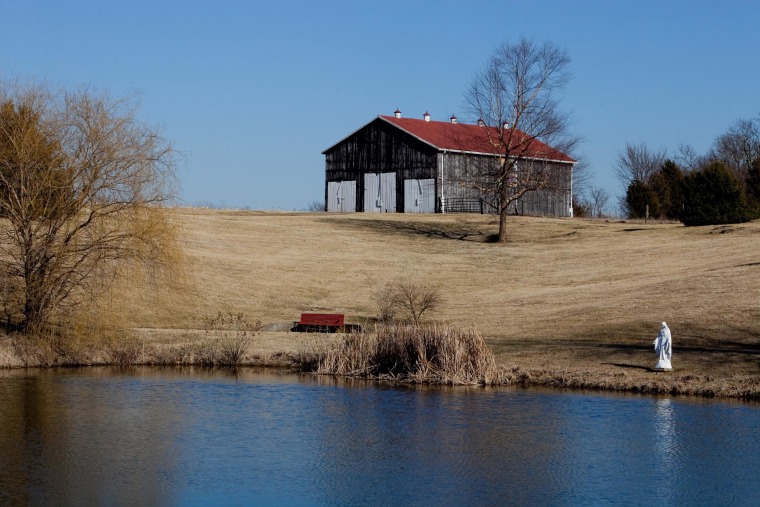
That seems to apply as much to nuns in Kentucky as to the laity.
The emotional hub for the anti-pipeline crowd is a spiritual stretch in the wild – two neighboring religious communities located 60 miles south of Louisville. The Abbey of Gethsemani, where '60s activist monk and writer Thomas Merton resided, is a wooded retreat and home to dozens of Catholic monks. A 15-minute-drive away sits the two-century-old Catholic motherhouse for the Sisters of Loretto, where nuns and lay members live and tend to cattle, corn and soybeans.
“When I look out my window, I see beauty,” said Sister Maria Visse. “When somebody else looks out the window, they only see: ‘Can this make me any money?’ There’s a protectiveness we feel, knowing what impact that (pipeline) intrusion would have on the natural balance.”
The builder, Tulsa-based Williams Co., calls the project “an American opportunity” that will foster “energy independence and stronger local economies,” and vowing, “safety is our highest priority.”
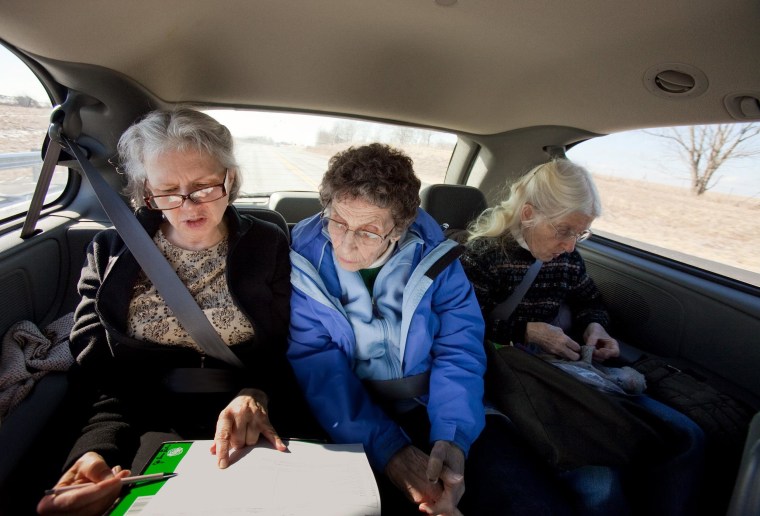
But in this turf war, the nuns believe they own the moral high ground. Their concerns include a surrounding geology pocked by caves and sinkholes. Some locals fear if the pipeline shifts and leaks, gas liquids could pollute underground streams.
Another worry involves landowner rights. Many locals have carefully watched the steady placement of small, pink flags – survey markers designating the apparent route for the pipeline.
Although a committee in the Kentucky legislature approved a bill on Feb. 26 that would stop a business from invoking eminent domain to forcibly place a pipeline, some residents – including Sister Maria Visse – say they remain on guard.
“If the older nuns are resisting this, it lends validity for some people who aren’t sure what position to take,” said Susan Classen, a lay member of Loretto. “We are responding in a way that fits who we are.”
Years ago, the sisters drafted an “ethic” that governs their working farm, three lakes, woods, wildflowers and pastures. It declares: “Land is sacred and it is an expression of our creator.”
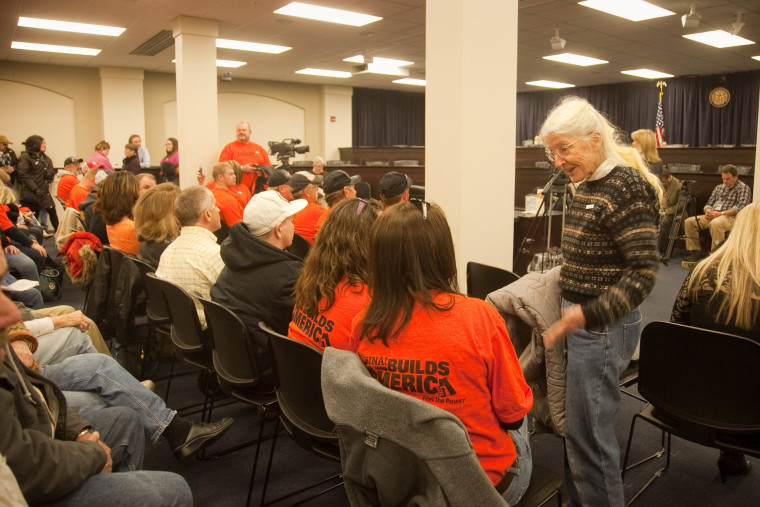
Together, the two religious communities own more than 3,000 acres. Last summer, the monks and the nuns separately refused to allow Williams Co. reps to survey their plots. On Aug. 8, the sisters took their dissent public during an open house hosted by Williams, breaking into a rendition of “Amazing Grace” when they felt they weren’t getting straight answers. Classen and Visse were among about a dozen Loretto members who joined in the song of protest.
Their spontaneous harmonizing seemed to galvanize the opposition. Locals against the pipeline dubbed the nuns the “singing sisters” and the monks as “Doubtin’ Abbey.” (Brother Aaron Schulte, an Abbey resident, said his community does not grant media interviews on the pipeline).
“It would be hard to overstate the impact the sisters have had,” said Wilder, who is filming a documentary, “Down the Line,” using the Bluegrass line to explore the larger story of energy production. “That moment (of song) garnered so much attention and so much bad press for the pipeline.”
On Feb. 19, Williams announced a delay in the pipeline build until 2016, saying the new date will “better align with the needs” of producers of natural gas liquids and “should help accommodate potential customers.” In an email, Williams Co. spokesman Tom Droege denied the nuns and monks influenced the decision.
A current map of the planned pipeline route does not include Marion County, where the sisters live, but it does list neighboring Nelson County, where the abbey is located.
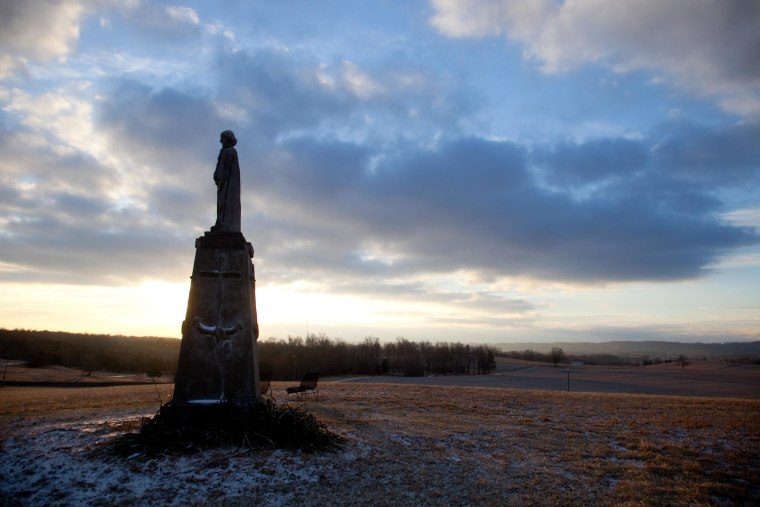
“Our land team began asking landowners for permission to survey their properties in summer 2013,” said Williams’ spokesman Droege. “They asked landowners in a broad swath along the proposed route and narrowed the route based on where they received permission to conduct the necessary civil and environmental surveys.”
Federal regulations require a minimum pipeline depth of three feet in standard soil conditions and two feet in areas of bedrock, according to the company’s website.
For individual landowners willing to talk with Williams’ reps, private negotiations were conducted over one-time payments for future trenching, placement and re-soiling. One of those landowners, Debbie Goodman, figures the going rate was about $30 to $35 per foot.
“We’re in favor because we think it’s going to bring in revenues, and we’re not afraid,” said Goodman, who with her husband, Kendall, co-owns Aunt Deb’s Place, a convenience store and gas station in Constantine, 60 miles west of the nuns. When construction begins, she expects extra customers.
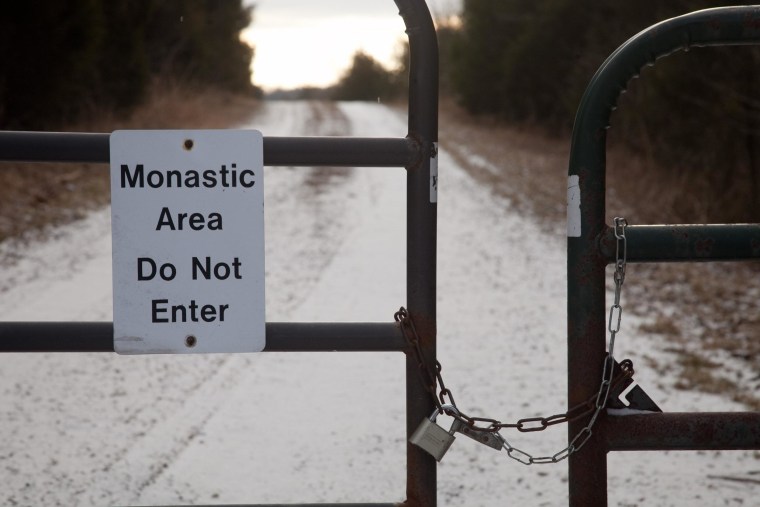
The line will run about 200 feet away from her business and home, and under about an acre and a half of land where the couple grows corn and soybeans.
“Now granted, Williams and whoever are going to make billions off of this. And landowners get paid once. But we felt like it was a fair offer,” Goodman said. “Nobody forced us to do anything. We didn’t have anyone pressuring us. No threats. We’re just happy all the way around with everything.”
